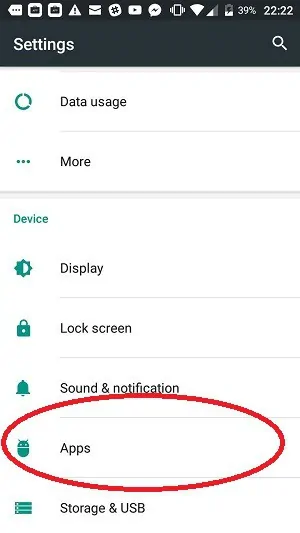Protecting your personal data is more important than ever before. With the increasing use of technology in our daily lives, it has become crucial to secure our information from potential cyber threats. One way to safeguard our data is by being mindful of the app permissions we grant on our devices.
App permissions refer to the access an application has to your device’s information, such as contacts, location, and camera. It is essential to review and understand the permissions requested by an app before installing it. By doing so, you can ensure that the app only has access to the data it needs and nothing more. This simple step can go a long way in keeping your information secure.
In today’s digital age, we must take extra precautions to protect our data. By being aware of the app permissions we grant, we can minimize the risk of our information falling into the wrong hands. So, the next time you install an app, take a moment to review its permissions and make an informed decision. Remember, staying secure starts with being proactive.. You may need to know : Unlocking Your Androids Potential: A Guide to Enabling App Permissions
As we live in the age of digital technology, we rely more and more on mobile applications for our daily activities. Whether it’s ordering food, booking a ride, or checking our bank account, we use apps for almost everything. But have you ever thought about how much personal data you’re sharing with these apps? App permissions are the key to securing your data and protecting your privacy.
Importance of App Permissions
App permissions are the settings that allow apps to access different features on your phone, such as your camera, microphone, and location. By granting or denying these permissions, you can control what data the app can access. Here are some reasons why app permissions are essential:
– **Protects user data**: App permissions help protect your sensitive information, such as your contacts, messages, and files. Without proper permissions, apps could potentially access and misuse your data.
– **Prevents unauthorized access**: By limiting app permissions, you can prevent unauthorized access to your device. This can help keep your personal information and online accounts secure.
Types of App Permissions
There are two types of app permissions: device access permissions and user information permissions. Device access permissions allow apps to access hardware features such as the camera, microphone, and location. User information permissions, on the other hand, allow apps to access personal data such as contacts, messages, and files.
Risks of Granting App Permissions
While app permissions are essential for securing your data, granting too many permissions can also pose a risk. Here are some potential risks of granting app permissions:
– **Data misuse**: Apps can potentially misuse your personal data, such as selling it to third parties or using it for targeted advertising.
– **Privacy invasion**: By granting certain permissions, you may be allowing apps to collect more data than necessary, invading your privacy and putting you at risk of identity theft.
Tips for Managing App Permissions
To ensure your data is secure, it’s important to manage your app permissions carefully. Here are some tips:
– **Review app permissions regularly**: Check your app permissions regularly and revoke any permissions that aren’t necessary.
– **Use permission management tools**: Some devices come with permission management tools that allow you to control app permissions more easily. Take advantage of these tools to ensure your data is secure.
Conclusion
Frequently Asked Questions
App permissions are essentially a set of rules that an application must follow to access certain features or data on your device. These permissions act as a gatekeeper, allowing only authorized apps to access your data. Without proper app permissions, your data could be at risk of being compromised or misused.
How can you determine which app permissions to grant and which to deny?
When downloading an app, it’s essential to review the app permissions that it requires. You can do this by checking the app’s description or by going to your device’s settings. It’s crucial to consider which permissions are necessary for the app’s functionality and which are not. For example, a camera app would require access to your device’s camera, but it may not need access to your contacts or location. If you’re unsure about a particular permission, it’s best to err on the side of caution and deny the permission.
Can apps access your personal information without your permission if you don’t set up proper security measures?
Yes, apps can access your personal information without your permission if you don’t set up proper security measures. It’s crucial to ensure that you have enabled security features such as a passcode or biometric authentication. Additionally, it’s essential to keep your device’s software up to date to ensure that any vulnerabilities are patched.
Conclusion
Thanks for visits imagerocket.net for taking the time to read this article on the significance of app permissions in securing your data. As we continue to rely on technology for our day-to-day activities, it becomes imperative to take proactive measures to protect our personal information from unauthorized access.
One of the most effective ways to secure your data is by being mindful of the app permissions you grant. It is important to understand the type of data an app requires and why it needs access to it. This will help you make informed decisions about the apps you install and the permissions you grant them.
In addition to being aware of app permissions, it is also crucial to keep your devices and apps up-to-date with the latest security patches and software updates. This will help prevent security vulnerabilities from being exploited by cybercriminals.
Remember, securing your data is a continuous process and requires a proactive approach. By taking the necessary steps to protect your personal information, you can minimize the risk of falling victim to cybercrime and ensure your data remains safe and secure.
In summary, always be mindful of the app permissions you grant, keep your devices and apps up-to-date with the latest security patches, and take a proactive approach to securing your data. By doing so, you can enjoy the benefits of technology without compromising your personal information.



